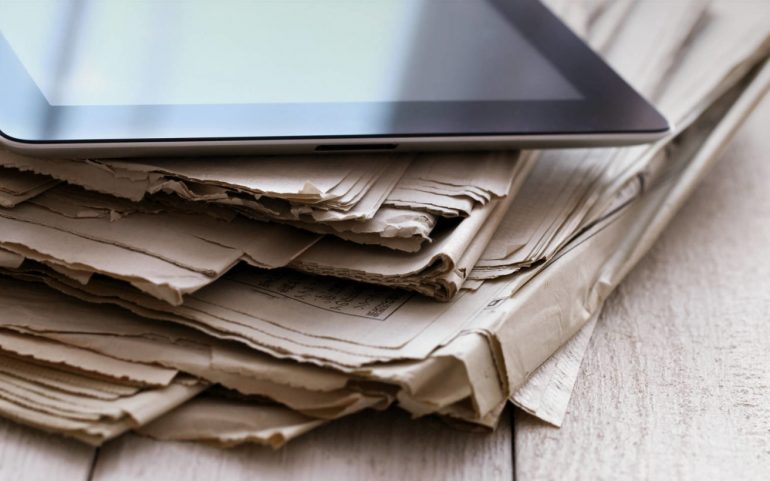Once upon a time there was a great event in some corner of the globe and here in Greece we learned it -at the best- one, maybe two, days later. And if you think it used to be very old, you are wrong.
The declaration of war by the Italians in 1940 was learned by the Athenians late on the morning of October 28 with the special branches of the newspapers. Until then, the news was spread by word of mouth by those who had a radio in their home and had heard the first war announcement. Now war breaks out in the most remote country and within five minutes we have the first photos.
What had happened at dawn on November 17, 1973 at the Polytechnic, became known (and not in all their details since there was censorship) in the morning. That is, several hours later. Now, we learn everything in a short time and, in fact, with creepy details.
When you gain something, however, you usually lose something else. So, for the balance of the thing. Somehow, in the evolution of the Press, we gained in immediacy and speed, we lost all this ritual of reading your newspaper, smearing your fingers with ink, smelling the paper.
From newspapers to the internet, as a journalist
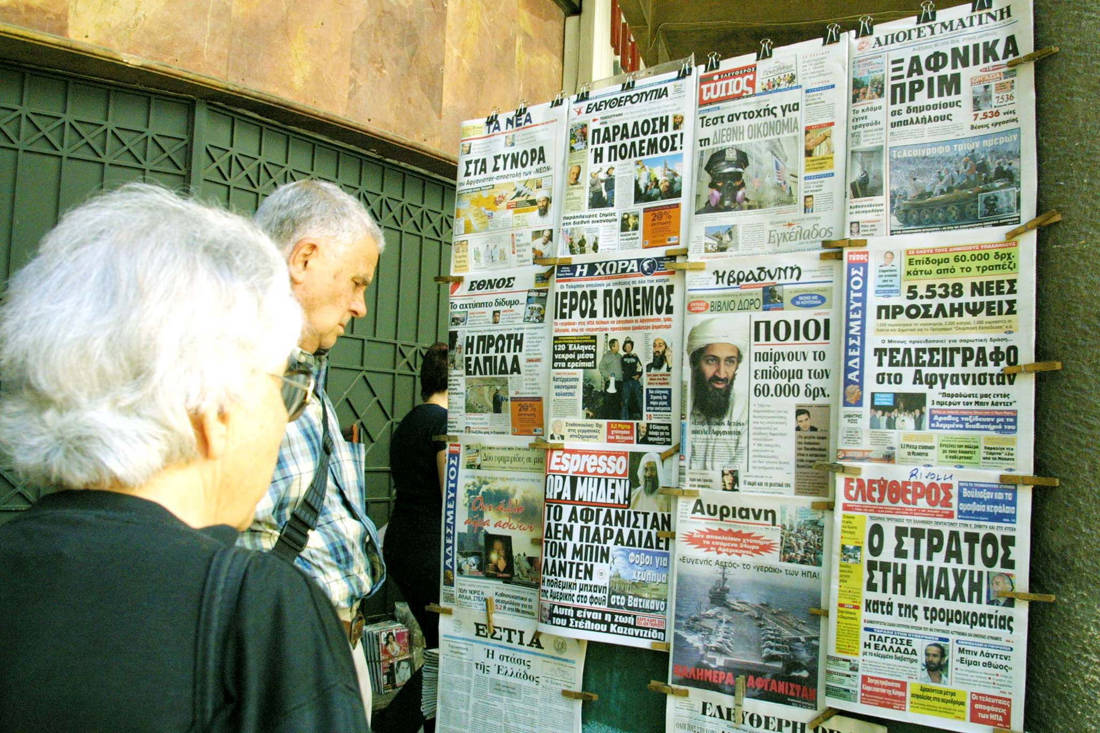
I still remember, and probably will not forget when, the day I entered the offices of "Apogevmatini" on Feidiou Street in the center of Athens several years ago as a probationary journalist. Childish fisherman, among "sacred monsters" of the area.
I still remember that some of the. Old people did not even use a computer to write their texts. They gave them manuscripts. Cultural shock. The texts left with the help of the messenger, Mitsaras, to go to the material, so that they could be set up on the page, titles, subtitles, etc. From there, again Mitsaras, to transfer them to the studio, to the correction , to make a draft and then Mitsaras again, to take it to the editor-in-chief for the first check and to the editorial director for the final "ok", before one or one page leaves for the press.
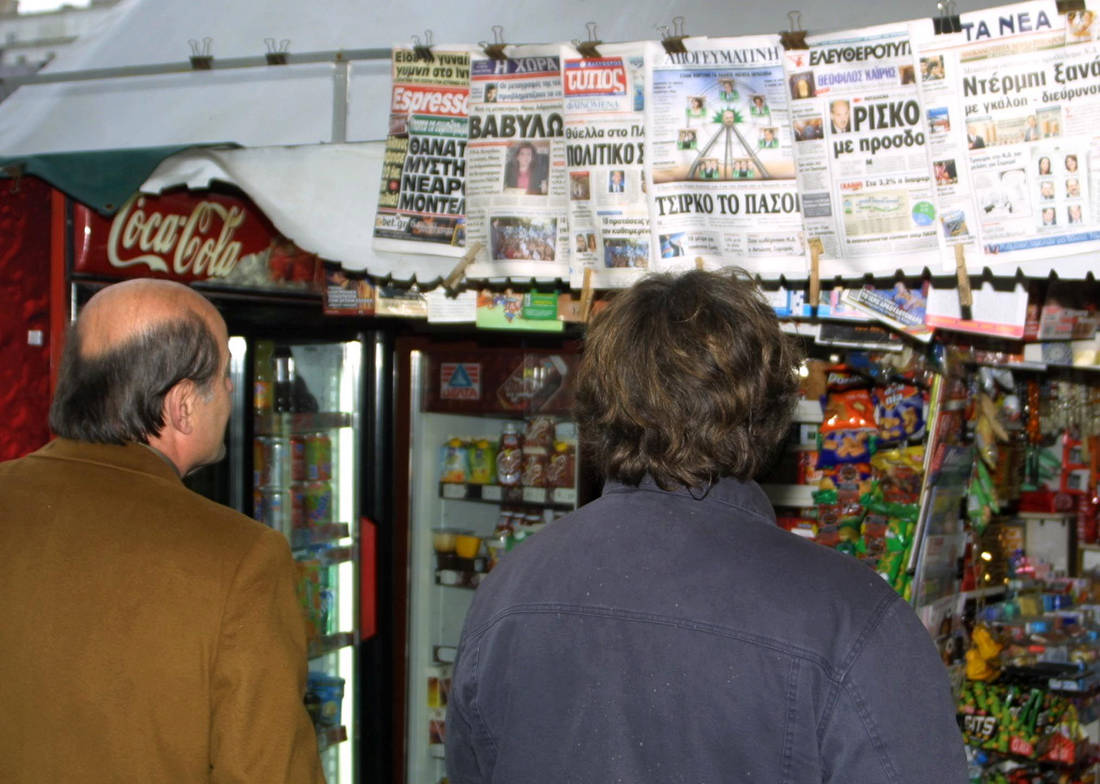
If in the meantime there was a development in the matter, the journalist informed competently, wrote the new text and then τσ Mitsaras paid for it who had to do the whole process from the beginning! And all this so that the news reaches your hands the next morning. Even older, the then "Mitsaras" had even more work and ran up and down the floors.
During the years of economic crisis, the press (or to put it better, the bubble that had developed around it) received a strong blow. Many "shops" were closed, many colleagues lost their jobs. And somewhere there the big decision had to be made: "do I continue in newspapers that are fighting for their survival or do I continue in the foreign - in terms of philosophy - internet"? The needs are great, so δί internet. And there comes the second big culture shock.
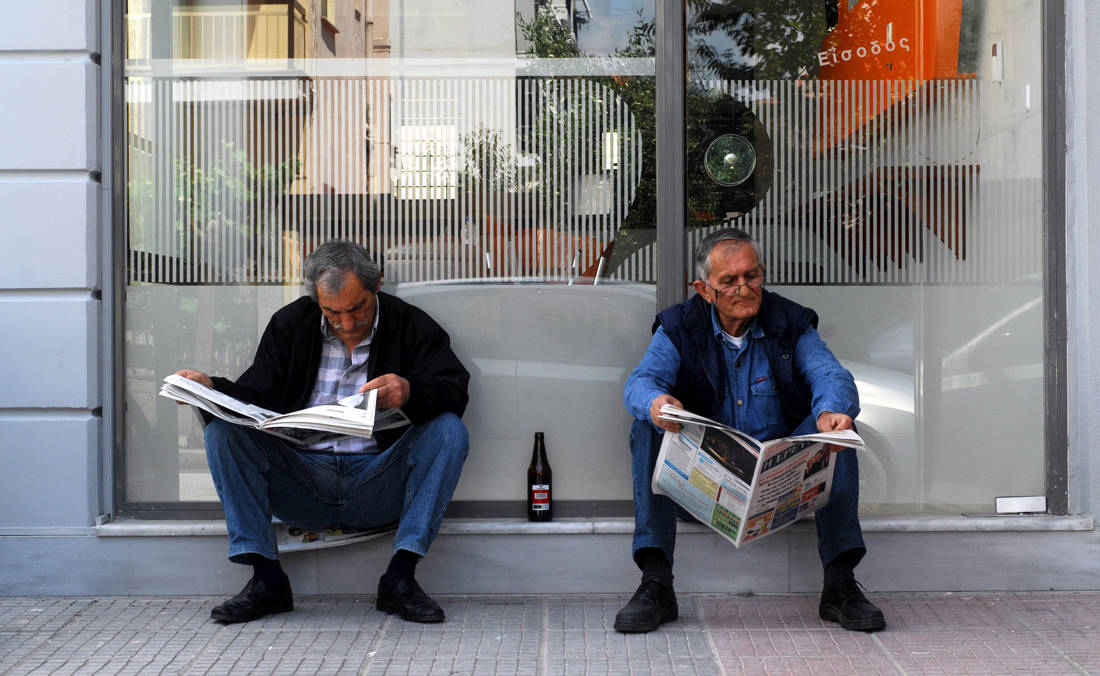
I write the first text, my editor-in-chief checks it and publishes it. What; So; Where is Mitsaras? I was looking for him for a long time. It took me a while to realize that we no longer need three to four meetings to decide if and how to publish something. A post is supplemented with additional information or some others are canceled, with a new post following in the next few minutes. In the meantime, however, the reader has already learned what has happened. In the newspapers - most of the time - time was an ally. On the internet time is the biggest enemy. Something is happening and you need to get it ready πέντε five minutes ago!
From newspapers to the internet, as a reader
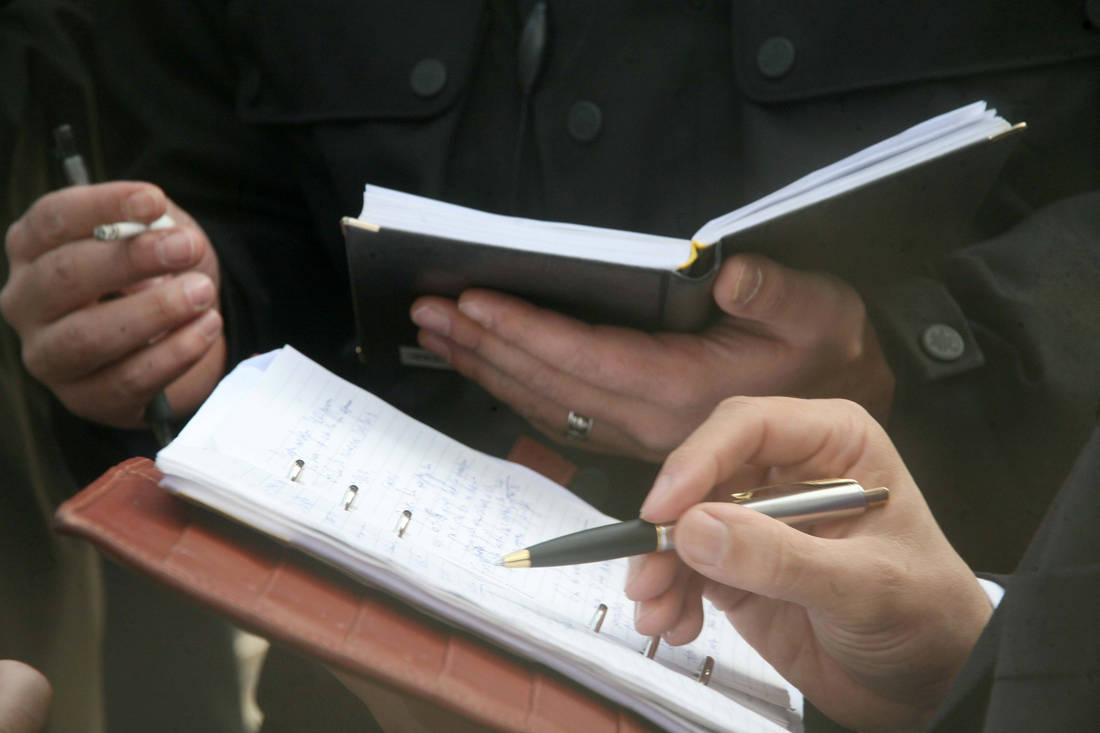
One of my editors once said that when we write or when we try to think like journalists, we should do it in a way that we can be sure that a grandmother with perception difficulties understands us in a remote mountain village.
Personally, I see that all this huge change has affected our lives from the people around me. A great example, say, my father. Every morning, he would get up, get dressed, go to the convenience store and pick up the sports newspaper to learn the news of his favorite team. He bought it, returned home, made his coffee and read it with religious reverence. No one should have bothered him at that time.
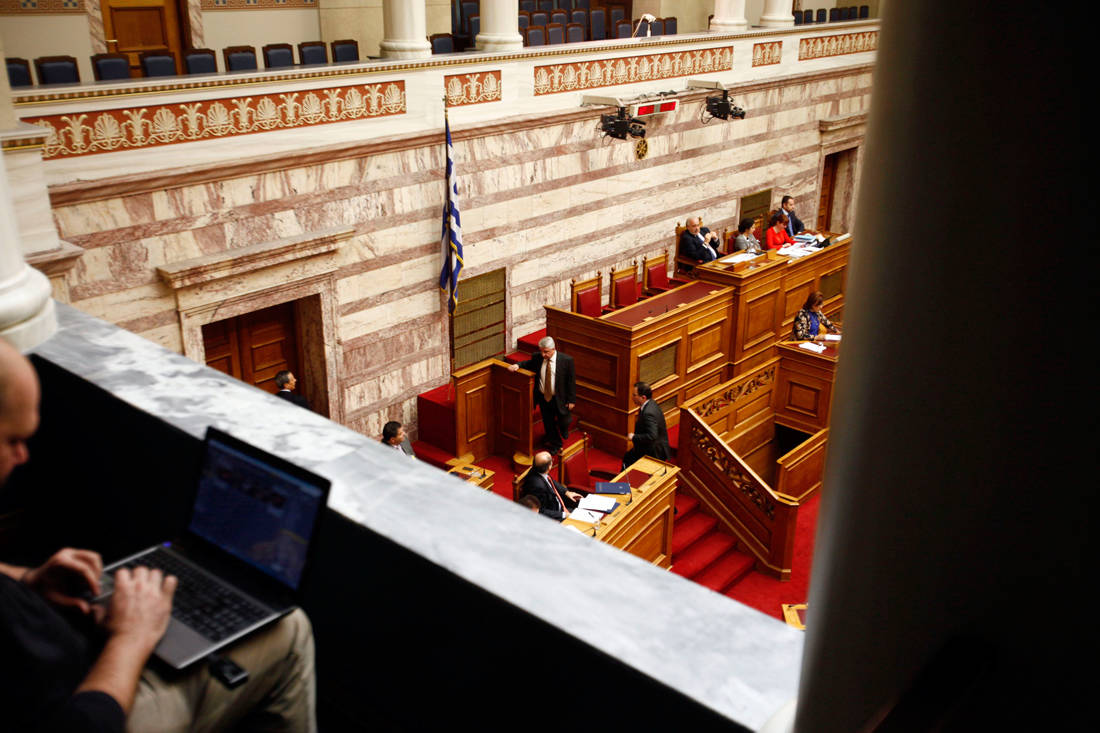
When I told him that he no longer needs to do this, but can see all the headlines from the tablet and then read all the news, not yesterday but also what happened a few minutes ago, he looked at me sternly like you to say to me: "here, I raised him, I studied him so that Kojam mantrahalos could make fun of me". When he did it for the first time his life changed. Now, he gets up, makes his coffee, opens his tablet and feels like the major shareholder of the team that has immediate information about everything.
The same goes for me as a reader (but who can not shake off his journalistic identity). The "battle" between the two media is unequal. Immediacy will always win the analysis which by its nature follows. And this is an indisputable truth. Tough, like any truth. Numbers and trends in society, however, prove it.
When your favorite site, which you also have as an application on your mobile phone, informs you with a notification about an extraordinary event that happened a few minutes ago, το "bunch" has ended with a goal from the locker room.
Reliability vs fake news

As already mentioned, when you win somewhere you lose somewhere else, so for the balance of things. The internet suffers from the "childhood disease" of fake news. Speed, overzealousness or just bad information sometimes lead to blunders and mistakes. You can hardly find something like this in the newspapers.
The big domestic news sites are trying to fight it. The "square", however, is spoiled by those who live by fake news and give a bad name to everyone else. If (and let it stay between us), we, the readers who reward them with our "clicks", are also responsible for this. Everything is finally in our hands. Or rather in our… mouse. In this new age it is not only the Media that must adapt.
However, it is worth saying that the newspapers are not innocent of blood. Let us not forget that the readers of a specific Athenian newspaper the day after the Italian torpedoing of Elli by the Italians on August 1940, XNUMX, had "learned" that everything had gone well and the celebration in Tinos was in a state of ecstasy, as the journalist had chosen to take a vacation since every year on the feast of the Virgin they did the same!
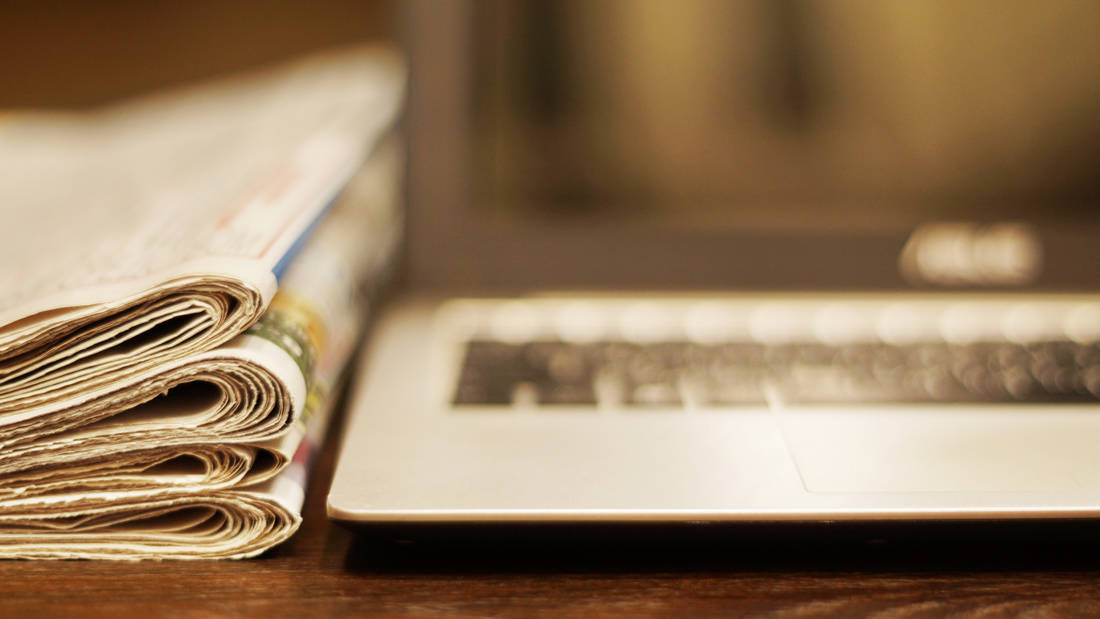
Or in the much more recent 2009 when three major Sunday newspapers wrote about the meeting "with smiles but also coldness" that Karamanlis and Erdogan had. The only problem in that story is that this was a meeting that never took place as the "Sultan" had canceled his visit to our country at the last minute. Sunday newspapers, you see, "close" their material at the earliest on Saturday noon at the latest, and only for extraordinary events. The meeting of the two leaders would take place that afternoon, so some people thought they would have a more "fresh" news, however, everything went wrong.
